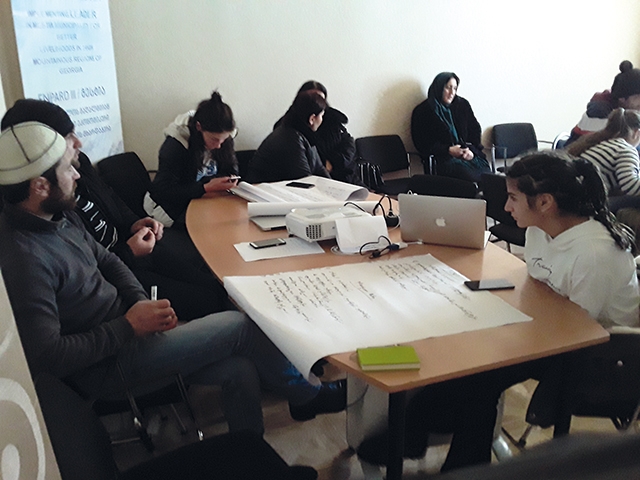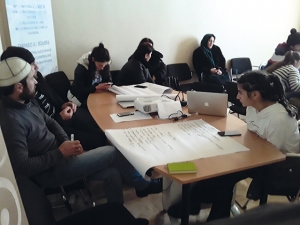LAG, No Lag: Mestia, Svaneti
Blog
LAG, as in Local Action Group. No lag, as in action now!
They asked me to appear for a follow-up meeting after a series of interviews of local people, including my wife and me, last year on farming and tourism in Upper Svaneti. There were 59 interviews given, with about a 2:1 ratio of women to men involved.
Tbilisi State University and other institutes of higher learning in and outside Georgia are involved, including Justus Liebig University Giessen in Germany, as are these organizations: Mountain Research Initiative (http://www.mountainresearchinitiative.org) and Scientific Research Initiatives for Mountain & Rural Development, Caucasus Region (https://www.mrd-cau.net/).
It’s a joy for this mountain-dweller to realize that so much is being done to focus on the high places around the world, including their unique ecologies, geologies and cultures. I came to Georgia because of Svaneti, what I had read about it in print before the internet really took off, and have made it my home for longer than anywhere else in the world now. So to see such concentration on places like this one is very encouraging, for me and for anyone else who lives here.
The area around Kazbegi was the first place these organizations zeroed in on in Georgia, Upper Svaneti the second. We are further away from Tbilisi than Kazbegi is, and larger, and higher, all of which adds to the complexity of everything here. But much which was asked and learned there can also be applied here.
What are the things, both positive and negative, special or even unique to mountains as compared to other zones? Their altitude; their pronounced three-dimensional topology; their flora and fauna; their weather and seasonal changes; their relative inaccessibility and its role in their history; their inhabitants’ livelihoods; their tendency to mix the lowlands’ religion, if any, with local animism; and so much more.
Glaciers are born here, as are many rivers (often fed directly by them) which then descend to the world’s seas or oceans. The altitudes themselves are usually growing or shrinking, by tiny amounts, under a variety of influences, year by year. Temperatures are generally cooler than in the lowlands, in every season, because of the height. There is less oxygen available, but often much cleaner air in general. Population density may be much lower than further down because of the topology, large percentages simply being vertical and/or much less arable. Tourism, though, may be high because of the natural beauty.
How can tourism best be managed here, sustainably and so that its results are best for most people? This is a key set of questions and answers. In Svaneti, the two main income sources are farming and tourism. How do they overlap? How can they support each other? Now that tourism for all seasons including winter is making a big comeback in Upper Svaneti, after its flourishing during late communism and die-off during the chaotic period of Georgia’s early independence, we need to be asking them. What are Europe’s Alpine areas getting right, especially Switzerland but also parts of France, Germany and Italy? What can we learn from their successes and failures, especially so as not to repeat the latter?
How are we the same as the Alps, and how different? Perhaps we don’t have access to the same levels of wealth and national or international support and subsidy that they do. But we do have access to some of it; and can do much with this, carefully and wisely. IF local corruption will not be too big an obstacle…
I look forward to seeing what my new friends and the inhabitants of Upper Svaneti, including my wife and I, can do together to make this place more “A Town Like Alice”.
Tony Hanmer has lived in Georgia since 1999, in Svaneti since 2007, and been a weekly writer for GT since early 2011. He runs the “Svaneti Renaissance” Facebook group, now with nearly 2000 members, at www.facebook.com/groups/SvanetiRenaissance/
He and his wife also run their own guest house in Etseri: www.facebook.com/hanmer.house.svaneti
By Tony Hanmer











